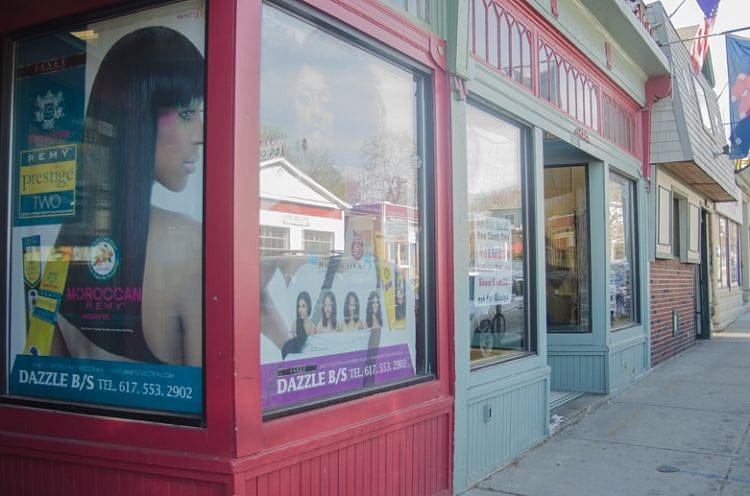Hair braiders trying to weave success face licensing snarls

BOSTON – For Gladys Freeman, an African immigrant, her skill at braiding hair in traditional ways gave her the key to charting her own path in America.
Freeman, who came to the area 18 years ago from Sierra Leone, owns and operates Dazzles Hair Salon on Washington Street in Roslindale, where she was found on one of April's first sunny mornings, among family and friends who had gathered in her shop as she began work. She specializes in all types of hair styling and braiding, including weaves, up-dos, short hair, hair care.

